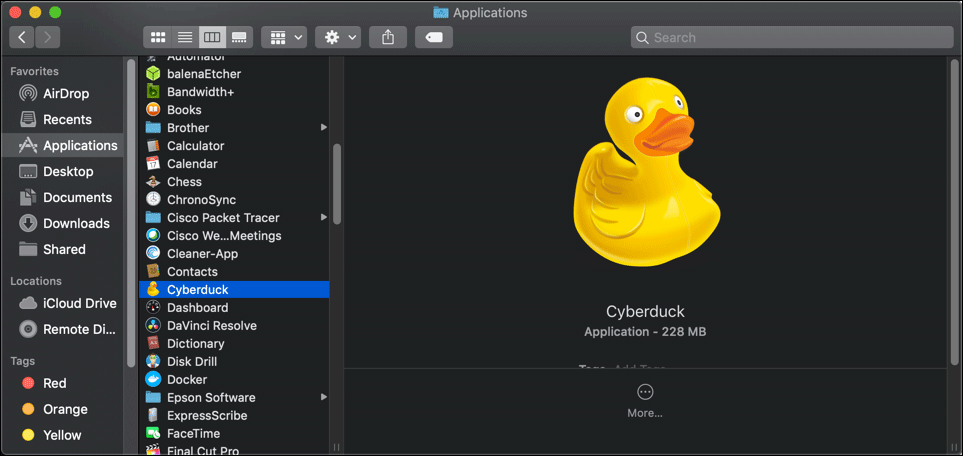

In the process, it created the world's first exascale distributed computing resource, enabling it to generate valuable scientific datasets of unprecedented size. During the COVID-19 epidemic, focused its resources on understanding the vulernabilities in SARS-CoV-2, the virus that causes COVID-19 disease, and working closely with a number of experimental collaborators to accelerate progress toward effective therapies for treating COVID-19 and ending the pandemic. Run by the Consortium, a worldwide network of research laboratories focusing on a variety of different diseases, seeks to address problems in human health on a scale that is infeasible by another other means, sharing the results of these large-scale studies with the research community through peer-reviewed publications and publicly shared datasets.
#HOW TO USE CYBERDUCK WITH AWS FREE#
Oncogenic Signaling Pathways in The Cancer Genome Atlas by Francisco Sanchez-Vega, Marco Mina, et al.Īlchemical free energy calculations biomolecular modeling coronavirus COVID-19 foldingathome health life sciences molecular dynamics protein SARS-CoV-2 simulations structural is a massively distributed computing project that uses biomolecular simulations to investigate the molecular origins of disease and accelerate the discovery of new therapies.The Immune Landscape of Cancer by Vésteinn Thorsson, David L.The chromatin accessibility landscape of primary human cancers by M.Genomic Data Commons by National Cancer Institute.Pan-Cancer Alterations of the MYC Oncogene and its Proximal Network Across The Cancer Genomeīy Franz X.The dataset contains open Clinical Supplement, Biospecimen Supplement, RNA-Seq Gene Expression Quantification, miRNA-Seq Isoform Expression Quantificati. TCGA has analyzed matched tumor and normal tissues from 11,000 patients, allowing for the comprehensive characterization of 33 cancer types and subtypes, including 10 rare cancers. The Cancer Genome Atlas (TCGA), a collaboration between the National Cancer Institute (NCI) and National Human Genome Research Institute (NHGRI), aims to generate comprehensive, multi-dimensional maps of the key genomic changes in major types and subtypes of cancer. Cancer genomic life sciences STRIDES whole genome sequencing


 0 kommentar(er)
0 kommentar(er)
